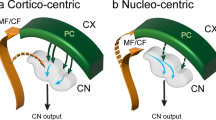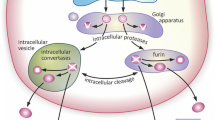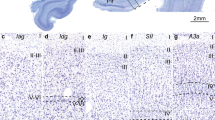Abstract
An increasing number of observations suggests an important and complex role for both high- (tyrosine kinase receptor, trk) and low- (p75) affinity neurotrophin receptors (NTRs) during development in human brain. In the present study, the cell-specific distribution of NTRs was studied in different developmental lesions, including focal cortical dysplasia (FCD, n=15), ganglioglioma (GG, n=15) and dysembryoplastic neuroepithelial tumors, (DNT, n=10), from patients with medically intractable epilepsy. Lesional, perilesional, as well as normal brain regions were examined for the expression of trkA, trkB, trkC and p75NTR by immunocytochemistry. In normal postmortem human cortex, immunoreactivity (IR) for trk and p75NTR was mainly observed in pyramidal neurons, whereas no notable glial IR was found within the white matter. All three trk receptors were encountered in high levels in the neuronal component of the majority of FCD, GG and DNT specimens. Strong trkA, trkB and trkC IR was found in neurons of different size, including large dysplastic neurons and balloon cells in FCD cases. In contrast, p75NTR IR was observed in only a small number of neuronal cells, which also contain trk receptors. Glial cells with astrocytic morphology showed predominantly IR for trkA in FCD and GG specimens, whereas oligodendroglial-like cells in DNT showed predominently IR for trkB. P75NTR IR was observed in a population of cells of the microglial/macrophage lineage in both FCD and glioneuronal tumors. Taken together, our findings indicate that the neuronal and the glial components of malformations of cortical development express both high- and low-affinity NTRs. Further research is necessary to investigate how activation of these specific receptors could contribute to the development and the epileptogenicity of these developmental disorders.




Similar content being viewed by others
References
Aguado F, Ballabriga J, Pozas E, Ferrer I (1998) TrkA immunoreactivity in reactive astrocytes in human neurodegenerative diseases and colchicine-treated rats. Acta Neuropathol 96:495–501
Althaus HH, Richter-Landsberg C (2000) Glial cells as targets and producers of neurotrophins. Int Rev Cytol 197:203–277
Aronica E, Leenstra S, Jansen GH, Veelen CW van, Yankaya B, Troost D (2001) Expression of brain-derived neurotrophic factor and tyrosine kinase B receptor proteins in glioneuronal tumors from patients with intractable epilepsy: colocalization with N-methyl-d-aspartic acid receptor. Acta Neuropathol 101:383–392
Aronica E, Yankaya B, Jansen GH, Leenstra S, Veelen CW van, Gorter JA, Troost D (2001) Ionotropic and metabotropic glutamate receptor protein expression in glioneuronal tumours from patients with intractable epilepsy. Neuropathol Appl Neurobiol 27:223–237
Aronica E, Gorter JA, Jansen GH, Veelen CW van, Rijen PC van, Ramkema M, Troost D (2003) Expression and cell distribution of group I and group II metabotropic glutamate receptor subtypes in taylor-type focal cortical dysplasia. Epilepsia 44:785–795
Barbacid M (1994) The Trk family of neurotrophin receptors. J Neurobiol 25:1386–1403
Barde YA (1989) Trophic factors and neuronal survival. Neuron 2:1525–1534
Barker PA (1998) p75NTR: a study in contrasts. Cell Death Differ 5:346–356
Barker PA, Murphy RA (1992) The nerve growth factor receptor: a multicomponent system that mediates the actions of the neurotrophin family of proteins. Mol Cell Biochem 110:1–15
Barkovich AJ, Kuzniecky RI, Jackson GD, Guerrini R, Dobyns WB (2001) Classification system for malformations of cortical development: update 2001. Neurology 57:2168–2178
Binder DK, Routbort MJ, McNamara JO (1999) Immunohistochemical evidence of seizure-induced activation of trk receptors in the mossy fiber pathway of adult rat hippocampus. J Neurosci 19:4616–4626
Binder DK, Routbort MJ, Ryan TE, Yancopoulos GD, McNamara JO (1999) Selective inhibition of kindling development by intraventricular administration of TrkB receptor body. J Neurosci 19:1424–1436
Blumcke I, Wiestler OD (2002) Gangliogliomas: an intriguing tumor entity associated with focal epilepsies. J Neuropathol Exp Neurol 61:575–584
Brunstrom JE, Gray-Swain MR, Osborne PA, Pearlman AL (1997) Neuronal heterotopias in the developing cerebral cortex produced by neurotrophin-4. Neuron 18:505–517
Casaccia-Bonnefil P, Gu C, Khursigara G, Chao MV (1999) p75 neurotrophin receptor as a modulator of survival and death decisions. Microsc Res Tech 45:217–224
Chao MV, Hempstead BL (1995) p75 and Trk: a two-receptor system. Trends Neurosci 18:321–326
Chen EY, Mufson EJ, Kordower JH (1996) TRK and p75 neurotrophin receptor systems in the developing human brain. J Comp Neurol 369:591–618
Connor B, Young D, Lawlor P, Gai W, Waldvogel H, Faull RL, Dragunow M (1996) Trk receptor alterations in Alzheimer’s disease. Brain Res Mol Brain Res 42:1–17
Correia L, Amado D, Cavalheiro EA, Bentivoglio M (1998) Persistence and atrophy of septal/diagonal band neurons expressing the p75 neurotrophin receptor in pilocarpine-induced chronic epilepsy in the rat. Brain Res 809:288–293
Crino PB, Duhaime AC, Baltuch G, White R (2001) Differential expression of glutamate and GABA-A receptor subunit mRNA in cortical dysplasia. Neurology 56:906–913
Crino PB, Miyata H, Vinters HV (2002) Neurodevelopmental disorders as a cause of seizures: neuropathologic, genetic, and mechanistic considerations. Brain Pathol 12:212–233
Dechant G, Barde YA (2002) The neurotrophin receptor p75(NTR): novel functions and implications for diseases of the nervous system. Nat Neurosci 5:1131–1136
De Simoni MG, Perego C, Ravizza T, Moneta D, Conti M, Marchesi F, De Luigi A, Garattini S, Vezzani A (2000) Inflammatory cytokines and related genes are induced in the rat hippocampus by limbic status epilepticus. Eur J Neurosci 12:2623–2633
Eddleston M, Mucke L (1993) Molecular profile of reactive astrocytes—implications for their role in neurologic disease. Neuroscience 54:15–36
Elmer E, Kokaia M, Ernfors P, Ferencz I, Kokaia Z, Lindvall O (1997) Suppressed kindling epileptogenesis and perturbed BDNF and TrkB gene regulation in NT-3 mutant mice. Exp Neurol 145:93–103
Engel JJ (1987) Outcome with respect to epileptic seizures. In Engel JJ Jr (ed) Surgical treatment of epilep. Raven Press, New York, pp 553–571
Farrell MA, Vinters HV (1997) General neuropathology of epilepsy. In: Engel JJ Jr, Pedley TA (eds) Epilepsy: a comprehensive textbook. Lippincott-Raven, Philadelphia, pp 157–174
Farrell MA, DeRosa MJ, Curran JG, Lenard Secor D, Cornford ME, Comair YG, Peacock WJ, Shields WD, Vinters HV (1992) Neuropathologic findings in cortical resections (including hemispherectomies) performed for the treatment of intractable childhood epilepsy. Acta Neuropathol 83:246–259
Friedman WJ, Greene LA (1999) Neurotrophin signaling via Trks and p75. Exp Cell Res 253:131–142
Graeber MB, Scheithauer BW, Kreutzberg GW (2002) Microglia in brain tumors. Glia 40:252–259
Grove J, Gomez J, Kentroti S, Vernadakis A (1996) Plasticity of astrocytes derived from aged mouse cerebral hemispheres: changes with cell passage and immortalization. Brain Res Bull 39:211–217
Gveric D, Kaltschmidt C, Cuzner ML, Newcombe J (1998) Transcription factor NF-kappaB and inhibitor I kappaBalpha are localized in macrophages in active multiple sclerosis lesions. J Neuropathol Exp Neurol 57:168–178
He XP, Minichiello L, Klein R, McNamara JO (2002) Immunohistochemical evidence of seizure-induced activation of trkB receptors in the mossy fiber pathway of adult mouse hippocampus. J Neurosci 22:7502–7508
Heese K, Hock C, Otten U (1998) Inflammatory signals induce neurotrophin expression in human microglial cells. J Neurochem 70:699–707
Hutton LA, Perez-Polo JR (1995) In vitro glial responses to nerve growth factor. J Neurosci Res 41:185–196
Junier MP, Suzuki F, Onteniente B, Peschanski M (1994) Target-deprived CNS neurons express the NGF gene while reactive glia around their axonal terminals contain low and high affinity NGF receptors. Brain Res Mol Brain Res 24:247–260
Kafitz KW, Rose CR, Thoenen H, Konnerth A (1999) Neurotrophin-evoked rapid excitation through TrkB receptors. Nature 401:918–921
Kaplan DR, Miller FD (1997) Signal transduction by the neurotrophin receptors. Curr Opin Cell Biol 9:213–221
Kaplan DR, Miller FD (2000) Neurotrophin signal transduction in the nervous system. Curr Opin Neurobiol 10:381–391
Kim JY, Roh JK, Lee SK, Chung CK (2002) Neurotrophin receptor immunoreactivity in severe cerebral cortical dysplasia. Epilepsia 43 Suppl 5:220–226
Kleihues P, Cavanee WK (2000) World Health Organization classification of tumours. Pathology and genetics of tumours of the nervous system. IARC Press, Lyon
Kokaia M, Ernfors P, Kokaia Z, Elmer E, Jaenisch R, Lindvall O (1995) Suppressed epileptogenesis in BDNF mutant mice. Exp Neurol 133:215–224
Kyin R, Hua Y, Baybis M, Scheithauer B, Kolson D, Uhlmann E, Gutmann D, Crino PB (2001) Differential cellular expression of neurotrophins in cortical tubers of the tuberous sclerosis complex. Am J Pathol 159:1541–1554
Levi-Montalcini R (1998) The saga of the nerve growth factor. Neuroreport 9:R71–83
Levine ES, Kolb JE (2000) Brain-derived neurotrophic factor increases activity of NR2B-containing N-methyl-d-aspartate receptors in excised patches from hippocampal neurons. J Neurosci Res 62:357–362
Li S, Uri Saragovi H, Racine RJ, Fahnestock M (2003) A ligand of the p65/p95 receptor suppresses perforant path kindling, kindling-induced mossy fiber sprouting, and hilar area changes in adult rats. Neuroscience 119:1147–1156
Lin SY, Wu K, Levine ES, Mount HT, Suen PC, Black IB (1998) BDNF acutely increases tyrosine phosphorylation of the NMDA receptor subunit 2B in cortical and hippocampal postsynaptic densities. Brain Res Mol Brain Res 55:20–27
Lorenz R (2001) Clinical study: epileptic seizures may modify cytokine secretion in patients suffering from epilepsy and in experimental animals. Neuroendocrinol Lett 22:330–331
Lu B, Yokoyama M, Dreyfus CF, Black IB (1991) NGF gene expression in actively growing brain glia. J Neurosci 11:318–326
Maldonado M, Baybis M, Newman D, Kolson DL, Chen W, McKhann G 2nd, Gutmann DH, Crino PB (2003) Expression of ICAM-1, TNF-alpha, NFkappaB, and MAP kinase in tubers of the tuberous sclerosis complex. Neurobiol Dis 14:279–290
Mamidipudi V, Wooten MW (2002) Dual role for p75(NTR) signaling in survival and cell death: can intracellular mediators provide an explanation? J Neurosci Res 68:373–384
McCarthy JB, Barker-Gibb AL, Alves SE, Milner TA (2002) TrkA immunoreactive astrocytes in dendritic fields of the hippocampal formation across estrous. Glia 38:36–44
Nishio S, Morioka T, Hamada Y, Hisada K, Fukui M (1999) Immunohistochemical expression of trk receptor proteins in focal cortical dysplasia with intractable epilepsy. Neuropathol Appl Neurobiol 25:188–195
Oderfeld-Nowak B, Zaremba M, Lipkowski AW, Kwiatkowska-Patzer B, Triaca V, Aloe L (2003) High-affinity NGF receptor in the rat spinal cord during acute and chronic phases of experimental autoimmune encephalomyelitis: a possible functional significance. Arch Ital Biol 141:103–116
Palmini A, Najm I, Avanzini G, Babb T, Guerrini R, Foldvary-Schaefer N, Jackson G, Luders HO, Prayson R, Spreafico R, Vinters HV (2004) Terminology and classification of the cortical dysplasias. Neurology 62:S2–8
Peltola J, Eriksson K, Keranen T (2001) Cytokines and seizures. Arch Neurol 58:1168–1169
Riddle DR, McAllister AK, Lo DC, Katz LC (1996) Neurotrophins in cortical development. Cold Spring Harb Symp Quant Biol 61:85–93
Ringstedt T, Linnarsson S, Wagner J, Lendahl U, Kokaia Z, Arenas E, Ernfors P, Ibanez CF (1998) BDNF regulates reelin expression and Cajal-Retzius cell development in the cerebral cortex. Neuron 21:305–315
Rosenow F, Luders HO, Dinner DS, Prayson RA, Mascha E, Wolgamuth BR, Comair YG, Bennett G (1998) Histopathological correlates of epileptogenicity as expressed by electrocorticographic spiking and seizure frequency. Epilepsia 39:850–856
Salin T, Mudo G, Jiang XH, Timmusk T, Metsis M, Belluardo N (1995) Up-regulation of trkB mRNA expression in the rat striatum after seizures. Neurosci Lett 194:181–184
Soltys Z, Janeczko K, Orzylowska-Sliwinska O, Zaremba M, Januszewski S, Oderfeld-Nowak B (2003) Morphological transformations of cells immunopositive for GFAP, TrkA or p75 in the CA1 hippocampal area following transient global ischemia in the rat. A quantitative study. Brain Res 987:186–193
Thoenen H (1991) The changing scene of neurotrophic factors. Trends Neurosci 14:165–170
Tutuncuoglu S, Kutukculer N, Kepe L, Coker C, Berdeli A, Tekgul H (2001) Proinflammatory cytokines, prostaglandins and zinc in febrile convulsions. Pediatr Int 43:235–239
Valdo P, Stegagno C, Mazzucco S, Zuliani E, Zanusso G, Moretto G, Raine CS, Bonetti B (2002) Enhanced expression of NGF receptors in multiple sclerosis lesions. J Neuropathol Exp Neurol 61:91–98
Van Veelen CW, Debets RM, Huffelen AC van, Emde Boas W van, Binnie CD, Storm van Leeuwen W, Velis DN, Dieren A van (1990) Combined use of subdural and intracerebral electrodes in preoperative evaluation of epilepsy. Neurosurgery 26:93–101
Vezzani A, Moneta D, Richichi C, Aliprandi M, Burrows SJ, Ravizza T, Perego C, De Simoni MG (2002) Functional role of inflammatory cytokines and antiinflammatory molecules in seizures and epileptogenesis. Epilepsia 43 Suppl 5:30–35
Vinters HV, Fisher RS, Cornford ME, Mah V, Secor DL, De Rosa MJ, Comair YG, Peacock WJ, Shields WD (1992) Morphological substrates of infantile spasms: studies based on surgically resected cerebral tissue. Childs Nerv Syst 8:8–17
Wadhwa S, Nag TC, Jindal A, Kushwaha R, Mahapatra AK, Sarkar C (2003) Expression of the neurotrophin receptors Trk A and Trk B in adult human astrocytoma and glioblastoma. J Biosci 28:181–188
Watt JA, Paden CM (2001) Upregulation of the p75 low-affinity neurotrophin receptor by phagocytically active perivascular active cells in the rat neural lobe. Cell Tissue Res 303:81–91
Wolf HK, Wellmer J, Muller MB, Wiestler OD, Hufnagel A, Pietsch T (1995) Glioneuronal malformative lesions and dysembryoplastic neuroepithelial tumors in patients with chronic pharmacoresistant epilepsies. J Neuropathol Exp Neurol 54:245–254
Wolf HK, Buslei R, Blumcke I, Wiestler OD, Pietsch T (1997) Neural antigens in oligodendrogliomas and dysembryoplastic neuroepithelial tumors. Acta Neuropathol 94:436–443
Yi JS, Lee SK, Sato TA, Koh JY (2003) Co-induction of p75(NTR) and the associated death executor NADE in degenerating hippocampal neurons after kainate-induced seizures in the rat. Neurosci Lett 347:126–130
Ying Z, Babb TL, Comair YG, Bingaman W, Bushey M, Touhalisky K (1998) Induced expression of NMDAR2 proteins and differential expression of NMDAR1 splice variants in dysplastic neurons of human epileptic neocortex. J Neuropathol Exp Neurol 57:47–62
Zhang J, Geula C, Lu C, Koziel H, Hatcher LM, Roisen FJ (2003) Neurotrophins regulate proliferation and survival of two microglial cell lines in vitro. Exp Neurol 183:469–481
Acknowledgements
This work was supported by the Stichting AZUA-funds (E. Aronica), National Epilepsy Fund “Power of the Small” and Hersenstichting Nederland (NEF 02-10; E. Aronica). F. Özbas-Gerceker was supported by European Science Foundation-Integrated Approaches for Functional Genomics Program (Exchange grant).
Author information
Authors and Affiliations
Corresponding author
Rights and permissions
About this article
Cite this article
Aronica, E., Özbas-Gerçeker, F., Redeker, S. et al. Expression and cellular distribution of high- and low-affinity neurotrophin receptors in malformations of cortical development. Acta Neuropathol 108, 422–434 (2004). https://doi.org/10.1007/s00401-004-0906-3
Received:
Revised:
Accepted:
Published:
Issue Date:
DOI: https://doi.org/10.1007/s00401-004-0906-3




